Jazz super-trio HBC—Scott Henderson, Dennis Chambers, and Jeff Berlin— at a gig in Israel.
It began about three decades ago at Hollywood’s Musicians Institute [formerly Guitar Institute of Technology], when (then) guitar student Scott Henderson walked into jazz-fusion bass instructor Jeff Berlin’s office and said, “You should hire me.”
The infamously outspoken Berlin (who says of a reported past offer to join Van Halen, “They were rock royalty and I didn’t wish to take the gig for mercenary reasons. But I should be in the band now—I would be the best bass player they ever had. I would lift them 40 percent higher than they are now”) decided to go to one of Henderson’s Top 40-cover-band gigs. Berlin came away so impressed that he hired Henderson to play on Champion, his first solo record. It was the start of a musical relationship that lasted until Berlin moved to Florida in the mid ’90s to open the Players School of Music.
But if you’re thinking the difficult-to-impress bassist—whose prestigious gigs over the years include stints with Frank Zappa, Allan Holdsworth, Sonny Rollins, k.d. lang, Kazumi Watanabe, T Lavitz (Dixie Dregs), and Anderson Bruford Wakeman Howe—was won over by note-for-note renditions of “Cocaine,” think again. Henderson used those gigs to show off the burning intervallic and chromatic lines that have made him a legend among fusion guitar geeks worldwide.
“I think I soloed more on some of my Top 40 gigs than I do on some of my band’s gigs today,” laughs Henderson—whose own list of accomplishments is as impressive as Berlin’s. Since graduating from MI, he’s worked with jazz gods Chick Corea (Miles Davis, Return to Forever) and Joe Zawinul (Weather Report), as well as renowned violinist Jean Luc-Ponty (Mahavishnu Orchestra). “All a club owner cares about is whether the people are dancing. Once you have the floor packed, you can play anything you want—people are drunk and nobody cares. I played 20-minute solos, just practicing the stuff that I learned at school.” Soon after leaving the ranks of MI’s students, Henderson joined its faculty, where he still holds a teaching position to this day.
Since opening the Players School, Berlin has been on hiatus from major touring. But in 2009, he got the gigging bug again and called up Henderson. “Scott and I are, frankly, made for each other,” says Berlin. Monster drummer Dennis Chambers (Parliament-Funkadelic, John Scofield, Santana) was also enlisted for the tour, and the trio recently released HBC—an album that borrows heavily from the Weather Report catalog to relentlessly showcase the members’ smoldering improvisational prowess.
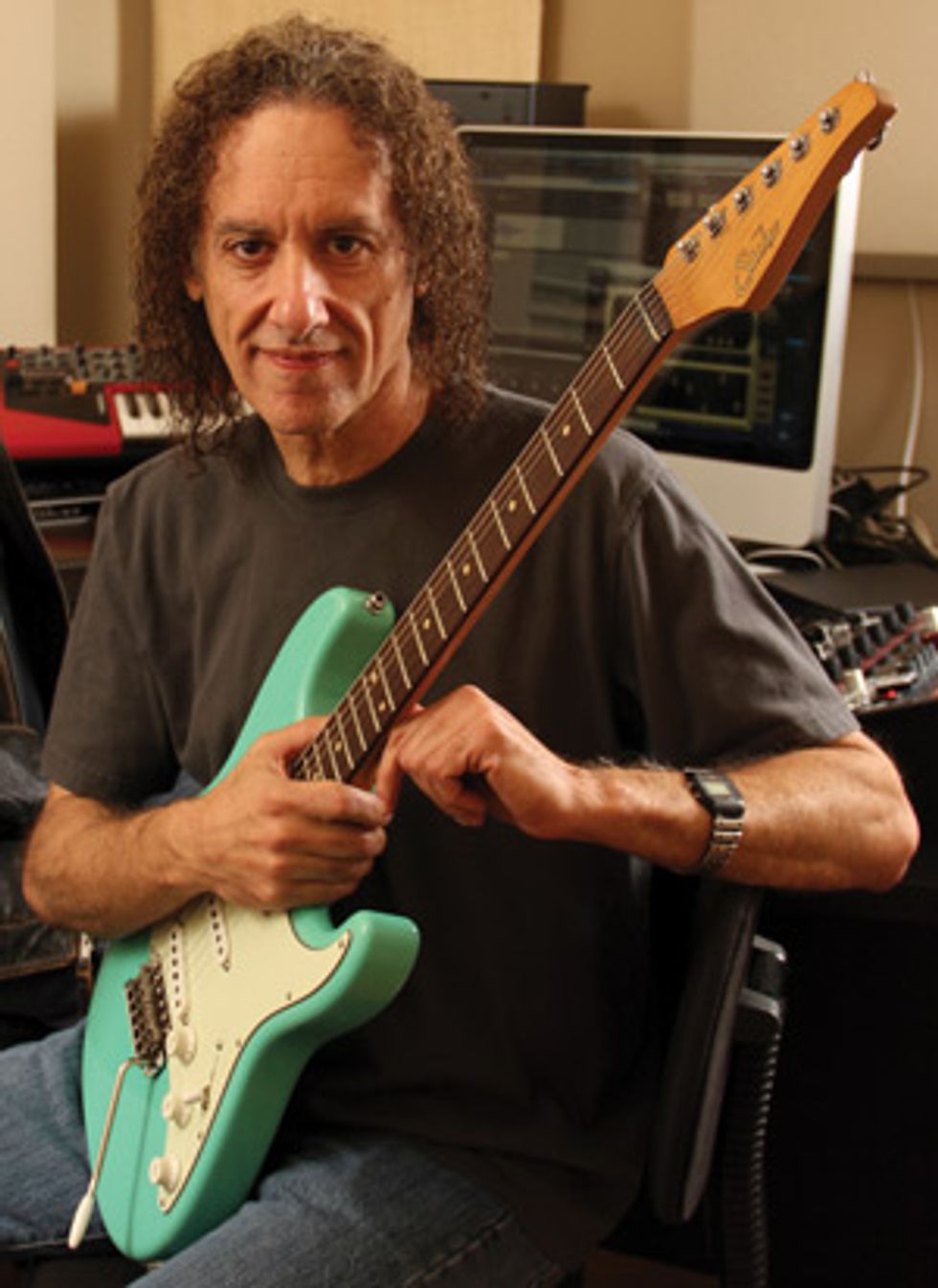
Scott Henderson in the studio with his signature Suhr guitar. Photo by Jessica Pettyjohn
What made you guys decide to play so
much Weather Report material on HBC?
Henderson: Outside of this project, we
all have our own bands. For me, it’s hard
enough to come up with music for my own
trio and I just don’t have time to write for
other projects, so when Jeff called me for
this project I said, “Yeah, I’ll do it as long as
it doesn’t involve writing.” Also, we’re sort
of known as improvisers. A lot of people
really don’t care about the material we’re
playing. They just want to hear Dennis play
his drums, Jeff play his bass, and me play
the guitar.
Berlin: But we’ll never play cliché Weather Report tunes like “Birdland” or “Teen Town.” We do a lot of [the] Wayne Shorter[-written] tunes because he’s one of the guys that harmonically represent my interests in music as well as Scott’s. We both like chords and harmony, and we both like music that doesn’t just go Dm–G7–Cmaj7.
Scott, are some of the Zawinul tunes on
the record songs you played while you
were in his band?
Henderson: No, actually these are tunes I
learned for fun. I’ve always thought that, if
I was going to do covers, I would rather do
covers of keyboard players not guitar players—because who wants to rip off somebody
else who plays your instrument? It’d
be kind of dumb to do John McLaughlin
covers and not have about one-sixteenth of
his chops [laughs].
Although this is a trio record, Scott transcribed
and overdubbed all the keyboard
parts from the original versions to flesh
things out.
Berlin: Lately, Scott’s gotten into guitar
orchestration rather than just, ‘Plug me in,
let me solo, and go home.’ Dennis and I
recorded the basic tracks in one day. Scott
took weeks to do his parts.
Henderson: I’m a big fan of Weather Report—of Zawinul and Shorter—and to pay homage to them, I wanted to make their music kick ass like it does on their own records. Those parts must have been important for them, or they wouldn’t have been on their records. I wanted to fatten it up and make it as big and textural sounding as it did on the original recordings. This meant multiple guitar tracks. I come from a career where your track on an album is basically one track. But when you’re doing a trio, you’ve got an opportunity to make it sound really huge like, Jimmy Page did with Led Zeppelin. My friend Mike Landau has a lot of experience layering, because all of his albums are layered. He mixed two of my records and taught me a lot of cool stuff in the studio.
How many layers might be on a track?
Henderson: Fifteen or 16. I wanted to
keep the mix pretty much the same as
on the originals. If something was low in
the mix on the Weather Report record,
I kept it low in the mix on our record.
Joe [Zawinul] had this secret saying,
“Whenever you do a record, make sure
there’s a bunch of stuff in there that’s
really low in the mix.” It adds ambience to
a record. It’s like seeing a Star Wars movie:
There’s so much there to see that you can’t
possibly see it all in one viewing, you have
to watch the movie multiple times.
In contrast to some of the headier tunes,
the earthy “Wayward Son of Devil Boy”
sounds like it might be more at home on
one of Scott’s blues records.
Henderson: Yeah, that came from our
live shows. After we do “The Orphan,”
which is kind of ethereal sounding, and
“Sightseeing,” which is kind of an atonal
tune, we always went into this blues, just
to sort of freak out the audience. On
Weather Report’s 8:30, “Sightseeing”
comes after “The Orphan,” so we just kept
that the same. We decided to put that on
the album in the same sequence.
Berlin: Scott calls himself a simple blues guitarist, but I don’t buy that—he’s way more than that. But the blues figures greatly into his playing, so when we did all this fusion stuff, he thought a blues [song] might be a nice addition. It also gave me a chance to play as simple a bass line as I could come up with—something Roscoe Beck might have come up with.
Jeff, do you enjoy this type of music?
Berlin: I do—and I enjoy it a lot more the
older I get.
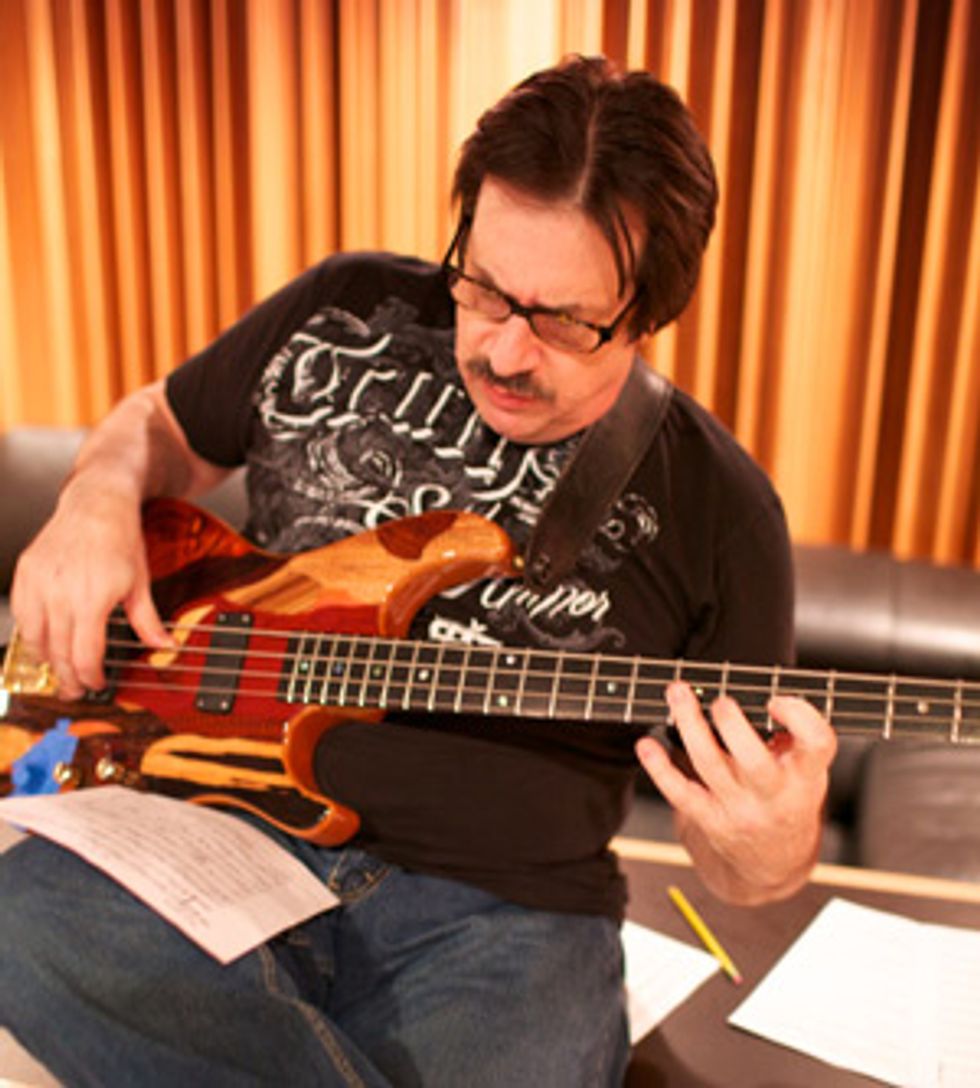
Bass legend Jeff Berlin practices some scales while recording with his trio in 2011 at the Clear Track Studio in Clearwater, Florida. Photo by Brad Kugler
How did having the amazing Dennis
Chambers aboard affect your playing?
Berlin: Dennis is one of the top two or
three virtuoso drummers on the planet.
He pushes Scott and me to the edge of
the cliff, and hopefully we don’t fall off.
I’ve never played with a drummer that
pushed me to the limits of knowing how
to subdivide rhythms as I experienced
with Dennis. Dennis does things that are
almost unimaginable. I always regard this
band as a band with a good bassist, a great
guitarist, and an unbelievable drummer.
Did it take some time to acclimate to
his playing?
Henderson: Well, nobody gets used to playing
with Dennis. You might get a little better
at it, but he’s still going to freak you out
every time. There’s just no way any human
being can hear the one [beat] with some of
the stuff Dennis does. All Jeff and I can do is
tap our feet and watch each other’s foot, and
at least we’ll come in together even if we’re
off from Dennis. We’re always looking at
Dennis like, “Did we make it?” He’ll shake
his head “yes” or “no,” but it doesn’t matter
because we feel like we’re doing a pretty good
job just keeping up with him at all.
Berlin: I can hang with his polyrhythmic playing now. That used to not be the case. It took me about two years to figure out how to play with him. One of the best suggestions he ever gave me was to not listen to him. What he meant was that when he goes into his polyrhythmic thing, if I start to count it literally—subdividing the rhythms that he’s playing—I can’t hear it that way. So what I do is simply count the music where I feel the quarter-note comes in on the downbeat. When I do that, I can play a very strong part under his drum solo, which he relied on as the true quarter-note version of the song we were playing. Dennis would play things so far outside of that, which worked because I wouldn’t get lost.
One of the standout tracks on HBC is
“Footprints.” Jeff, your solo showcases
your unique legato approach. Is that
inspired from your beginnings as a violin
prodigy or from working with players like
Henderson and Holdsworth?
Berlin: It comes from my violin playing.
The legato style is not that popular—or not
even popular at all for bass players. It also
comes from the fact that I have a goal to not
sound like my fellow bass players. I have a
philosophy that if I really want to call myself
different, I had better play differently.
Do you keep your action low to facilitate
the legato approach?
Berlin: It’s very low and very close to
the fretboard.
Scott, your solo on that track is some
of your most exciting playing ever. The
clean tone sounds like you’re using a jazz
box, which you don’t often employ. What
guitar did you use for that?
Henderson: I wanted to do it as a traditional
jazz-guitar thing, because I don’t often
get to do that. I don’t own a hollowbody—
when I recorded Reality Check,
Ibanez loaned me a George Benson
model. I didn’t rent one this time, I used
my Line 6 Variax 700. I ran that into a
Suhr Badger, which warmed it up quite
a bit. I sent the track to a couple of my
friends who actually play jazz boxes, and
they gave me the thumbs up.
HBC in Bangkok, Thailand. Henderson routes his Suhr guitar through a signature Suhr head driving
Marshall 4x12s, while Berlin plays his Dean 4-string through two Ampegs and an unidentified combo.
Scott, you’re also known for your
legato technique, as demonstrated on
the new “Stratus” solo. Early in your
career, you used humbuckers. Now
that you’re using single-coils, is it
harder to play those types of passages?
Henderson: Yeah, physically harder. My
guitars are set up now more for tone
than for speed. The action is a little bit
higher now than it used to be, because
I want my guitars to ring really clear.
Some people like my tone back then.
It might have been a little smoother
because I was using those double-screw
humbuckers, which make the tone
creamy and milky—but there’s no rock
’n’ roll whatsoever in that sound. They
also have no bass whatsoever. They’re
very small sounding. When I listen to
my tone from the old days, it sounds
very thin, whereas now my tone sounds
a little bit more rock, but it’s way fatter
and takes up more space. I’m also using
.011s now instead of .010s, tuned down
to Eb, and they’re a little bit harder to
bend than .010s in E.
Jeff, do you tune down to accommodate
Scott’s tuning?
Berlin: No, I play in E. They detuned
me for the record, because Scott likes
the Eb tuning, but I can’t function in Eb.
When we’re on the gig [live], Scott plays
in E.
Tell me about some of the unique features
of your signature instruments.
Berlin: My bass is a Dean 4-string with
passive Bartolini pickups. I know active
is popular, but I prefer passive because I
don’t like the sound of active pickups—they sound artificial to me.
Henderson: My Suhr signature model is not really that far away from Suhr’s Classic model. The only thing that makes it a Scott Henderson model is that, instead of a C-shaped neck, it has a D shape—which has a little less wood on the back and a little more on the sides. Also, my model has a real Fender 6-screw bridge—it won’t sound like a Strat if it doesn’t. That’s, like, amazingly important. People have said to me, “I got a Suhr and it doesn’t sound like a Strat, what’s wrong?” They’ve got some kind of Gotoh 2-post bridge on it, and I’m, like, “Well, half the sound of a Strat is the bridge.” Anything else is not going to sound like a Strat, because the regular 6-screw vintage Strat bridge is going to give the guitar twice the bass of a 2-post bridge.
Another thing that’s different about my guitar—and this is kind of a cool thing that a lot of my students have copped—is that, when most guys use the two and four positions on a Strat, they want them to be bright. But I have the tone controls disabled on the two and four positions, because I have the treble rolled down on my treble pickup, so if I switch to two or four, I’d have to take that tone knob and roll it all the way up and then roll it all the way back down when I go back to the treble pickup. I’d be messing with my tone knob all night and it would drive me nuts. When the tone control is disabled, it’s just like the treble is up all the way.
Henderson insists that his Suhr guitars have a traditional 6-screw bridge for authentic Strat tones,
while Berlin prefers passive Bartolini pickups in his signature Dean bass. Photo by Jessica Pettyjohn
What do you use the two and four
positions for?
Henderson: I usually use it for funky
rhythm stuff. I use it when soloing, too.
When I want the solo to just come out
into your face, I’ll switch to one of those
in-between positions. But the cool thing is
that, when I go back to my treble position,
the knob is still where it was.
Jeff, you’ve employed a unique chorus
sound for a long time now. What pedal
is that?
Berlin: I’ve used the same pedal for 20
years. [One year] I was performing [for
the pedal manufacturer] at NAMM, where
demonstration of gear is mandatory, and I
didn’t charge a penny—I didn’t ask them for
anything. But two years in a row I forgot to
bring my own. I asked the company twice
if I could use their pedal [at NAMM], and
one day I got an email that said, “We’re
tired of loaning you your own pedal. We’re
not lending you one anymore—bring your
own.” I wrote them and said, “Well, why
don’t you have me as an endorser?” The
response I got—and I’m quoting here—was,
“We had a meeting and we decided to pass
on that one.” Now, I’ve sold six figures’
worth of amplifiers for Markbass, and I’ve
sold tons of basses for Dean, but with these
guys the only way I felt I ought to react in
regards to how cheaply they treated me was
to never mention their name. I haven’t sold
anything for these guys.
Jeff, over the years, you’ve developed a
reputation as having a somewhat inflammatory
personality. Is it true that you got
banned from a bass forum?
Berlin: The forums don’t count, because
the forums are [full of ] amateur musicians
all trying to function as professionals before
they’re ready to do so.
Your unwavering positions against metronome
use and rock music education’s
validity are both controversial and legendary.
Can you touch on those topics briefly?
Berlin: I say things I regard as truthful and
that I can prove—there’s nothing I say that
I can’t back up. The metronome is not useful
at all, because time doesn’t come from a
box that clicks. Rock schools, rock camps,
or rock lessons are entertainment—they’re
not going to help you play better. The blind
are leading the blind. Teachers that don’t
know about music are teaching people that
don’t know how to play and aren’t getting
better, and everybody’s happy but me.
Scott Henderson’s Gear
Guitars
Suhr Signature model,
Line 6 Variax 700,
’90s Gibson Les Paul,
Gibson SG
Amps
’71 Marshall head,
Suhr SH-100 signature head,
Kerry Wright 4x12 with
Celestion 25-watt Greenbacks,
Fender Bandmaster modded
by Alexander Dumble,
Fender Hot Rod Deluxe,
Marshall DSL head
Effects
Xotic RC Booster,
Maxon SD-9,
Fulltone Octafuzz and Plimsoul,
Z.Vex Fuzz Factory,
Arion SCH-1 with true-bypass mod,
Vertex Effects Systems Axis wah,
Boss SE-70,
Boss RC-2 Loop Station,
Vertex-modded Boss FV500L
Strings, Picks, and Accessories
D’Addario .011–.049 sets,
Fender heavy picks,
Strap King straps,
Xotic XGC-1 Scott Henderson
signature cables,
Suhr MiniMix II (for isolating the
wet signal from the Boss SE-70),
Vertex pedalboard,
Tech 21 MIDI Mouse,
Snark SN-8 tuner
Jeff Berlin’s Gear
Basses
Dean Jeff Berlin signature 4-string
Amps
Markbass CMD 151P signature
1x15 combo
Effects
Unnamed chorus pedal
Strings
DR Strings DDT .040–.100 sets
Do you enjoy playing rock bass?
Berlin: I like being available to people
that call me to play simple music, because
I don’t enjoy constant virtuosity unless I
put myself in that situation to perform it.
I’d really much rather play rock or pop. I
just did a record with a guy who produced
Judas Priest and Black Sabbath. I questioned
constantly, “Is this what you want?
Am I doing this correctly?” And I got a lot
of affirmation that I was one of the best
rock bass players they ever worked with,
because I tried to represent the music correctly
and I added a little bit of my Jeff
Berlin-isms in there. That combination
seemed to work.
Didn’t you turn down the Van Halen gig
back in the day?
Berlin: I turned Van Halen down because,
when you join a band, you join it in its
entirety. I didn’t wish to take the gig just to
make a paycheck and then maybe leave the
band. It’s not the correct thing to do with a
band that is as legendary as theirs.
Would you take the gig now if Van
Halen asked?
Berlin: Well, I should be in the band now,
but I’ll explain that in a second. When I
did it then, they were into activities that I
preferred not to participate in, so I bowed
out. My maturity puts me in the area to play
simple rock, but I can add stuff that really
is not easy to find in other bassists. But of
course, Eddie’s son has that gig, and as long
as he’s doing a good job and everybody seems
to like the band, then I won’t get the call.
Can you elaborate?
Berlin: I would do things that they expect
and also provide them with things that
would hopefully, and pleasantly, be unexpected
to them.
Henderson: I can’t even imagine Jeff playing in Van Halen. That gig calls for a 100-percent-support bass player, and I just don’t think that’s a good fit. As far as just playing on a pop or a rock gig, we all have our moments when we wish we made more money but nobody wants to play music that they hate. Not saying that Jeff hates Van Halen—because we all love Van Halen. I think Van Halen’s a great guitar player and I always have really liked his playing. But I couldn’t play that music all night and be myself, and neither could Jeff. I think there are very few pop gigs outside of maybe Steely Dan or Beyonce where I would enjoy myself. Anybody else, I feel like I’d have to dumb my stuff down. To be on a pop gig that you don’t like, you have to be an actor, and I’ve never been much of an actor. But Steely Dan or Beyonce—if they call, I’m there.
YouTube It
For a taste of Scott Henderson and Jeff Berlin live, doing what they do best,
check out the following clips on YouTube.com. Note that Henderson has
exacting standards for YouTube videos of his playing—he’ll vigilantly take down
videos he doesn’t like, so watch these while you can!
Henderson, Berlin, and Chambers
tear it up live on “The
Chicken,” a classic jam tune
by saxophonist Pee Wee Ellis.
Henderson uses one of his
aqua Suhr custom models to
solo over a bluesy vamp with
Chambers and Berlin.
Berlin was one of the first to
cast the electric bass in a
lead role. Here, he plays an
unaccompanied rendition
of Eric Clapton’s “Tears in
Heaven” that encapsulates
the pioneering elements of
his style, including a more
chordal approach and virtuosic
runs.




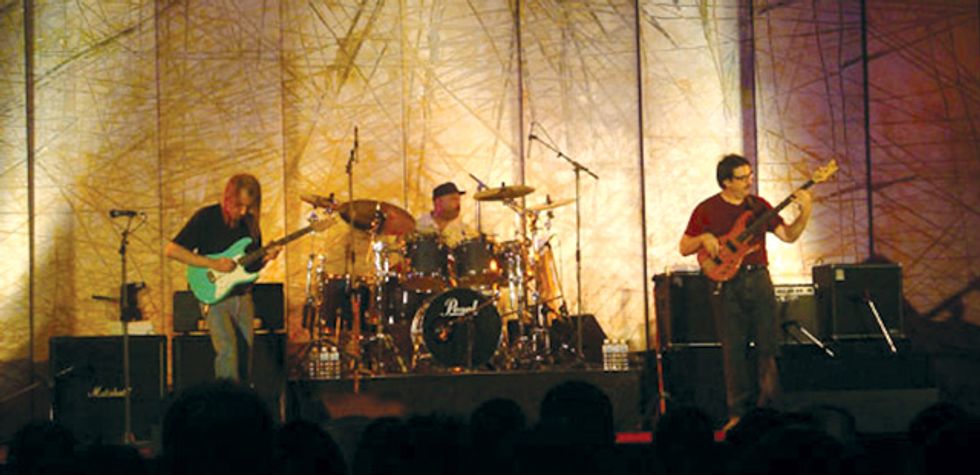
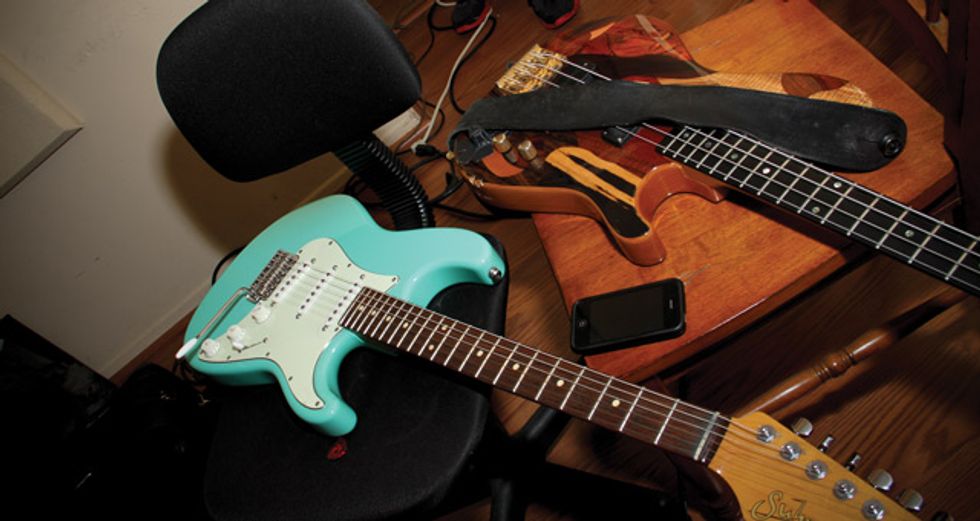








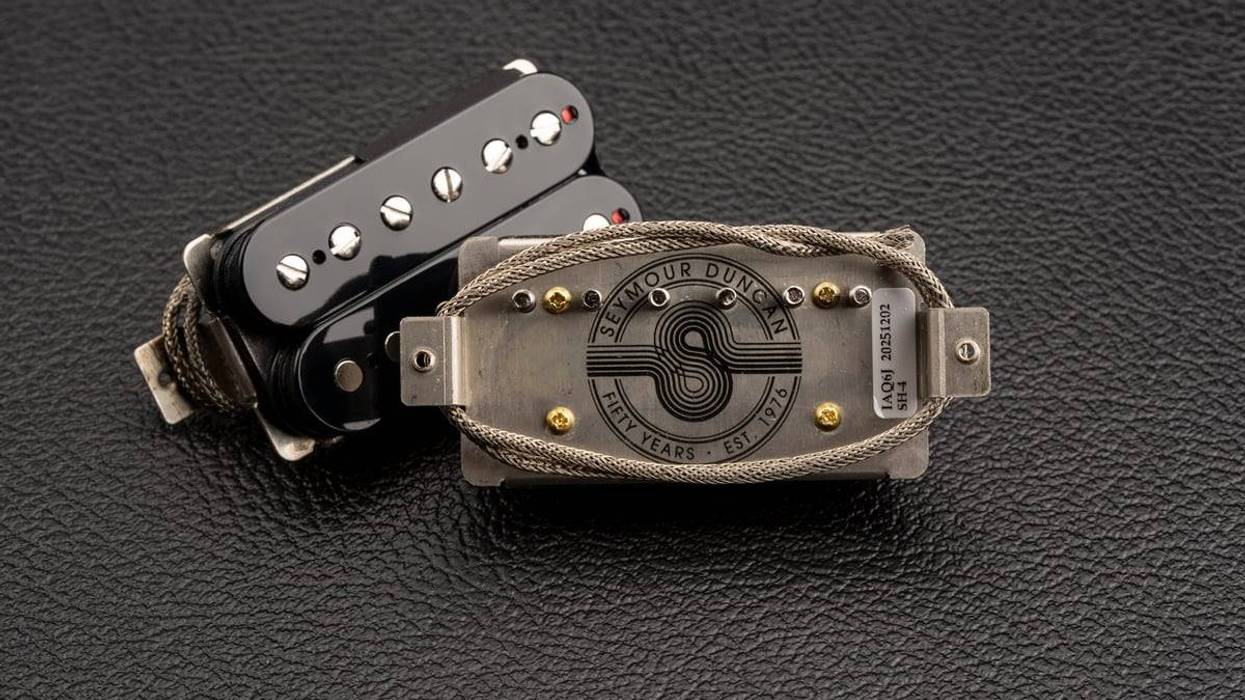



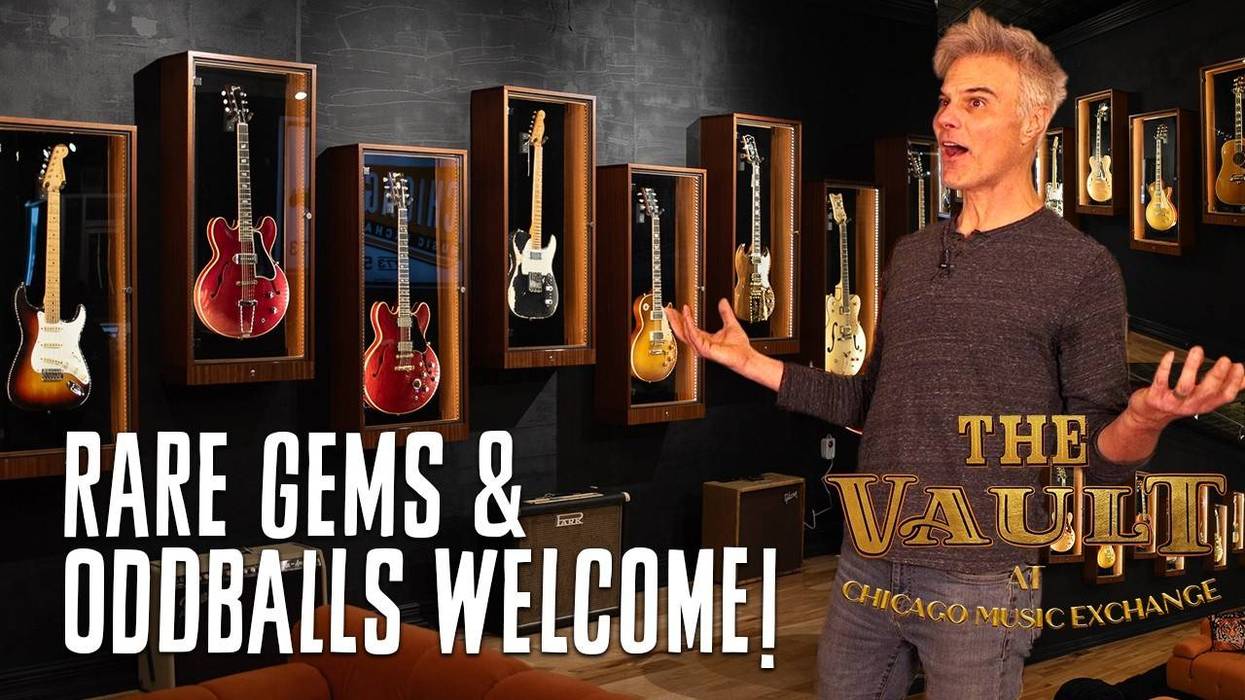

![Rig Rundown: Russian Circles’ Mike Sullivan [2025]](https://www.premierguitar.com/media-library/youtube.jpg?id=62303631&width=1245&height=700&quality=70&coordinates=0%2C0%2C0%2C0)
















![Rig Rundown: AFI [2025]](https://www.premierguitar.com/media-library/youtube.jpg?id=62064741&width=1245&height=700&quality=70&coordinates=0%2C0%2C0%2C0)











